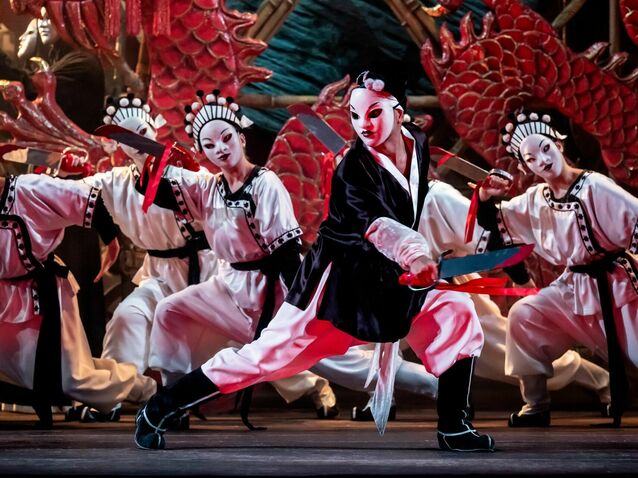 © Camilla Greenwell
© Camilla Greenwell
Schedule
Glossary
show the glossarySearch
Connect
-
Connect to your account
-
Create your account
Community
Chronique à la une
 © Camilla Greenwell
© Camilla Greenwell
Filter
All columns
Anna Netrebko and Yusif Eyvazov Reign Supreme in Turandot at t...
Sam SmithTurandot, with a libretto by Giuseppe Adami and Renato Simoni, is Giacomo Puccini’s final opera. It was left unfinished at the time of his death in 1924, and posthumously completed by Franco Alfano before premiering at Milan’s Teatro alla Scala in 1926. There have subsequently been other completions of the score, most notably by Luciano Berio in 2001, but the Alfano version remains the most frequently performed, and is the one used in this instance. Set in Peking in...
Outstanding Musical Credentials in Ariodante at the Royal Ball...
Sam SmithAriodante HWV 33 is an opera seria in three acts by Georg Friedrich Haendel. The anonymous Italian libretto was based on a work by Antonio Salvi, which had itself been adapted from Canti 4, 5 and 6 of Ludovico Ariosto’s Orlando Furioso. It premiered at London’s Covent Garden Theatre on 8 January 1735, and received eleven performances during its initial run. It was revived by Handel for his 1736 season, but then went unperformed until it appeared in Stuttgart in 1926....
First Revival of Oliver Leith’s Last Days at the Royal Ballet ...
Sam SmithLast Days, by composer Oliver Leith and librettist Matt Copson, is based on Gus Van Sant’s eponymous film of 2005. In 1994 Kurt Cobain, the lead singer of rock band Nirvana, took his own life. Van Sant’s film is not strictly the story of Cobain’s demise, but, by focusing on a fictitious musician named Blake, it tries to imagine what he might have gone through in his final three days, which still remain something of a mystery. Van Sant initially thought that the film might...
First Revival of Cal McCrystal’s HMS Pinafore for English Nati...
Sam SmithEnglish National Opera has a long and proud tradition of performing works by Gilbert and Sullivan, although the productions they have presented have differed markedly in style. Jonathan Miller’s 1986 staging of The Mikado, which is still going strong having last been revived in 2019, placed the action in a 1920s hotel and revealed the highest levels of exuberance and professionalism. On the other hand, Mike Leigh’s 2015 version of The Pirates of Penzance, most recently seen...
An Elisir of Eternal Youth at the Liceu
Xavier PujolIt is unusual for an operatic production to remain in the repertory for more than forty years, and rarer still for it to continue looking fresh and youthful. This Elisir d’amore, which will occupy the Liceu throughout the Christmas season, has a long and distinguished history. In 1983 Barcelona’s Grec Festival presented a staging of L’Elisir by Mario Gas in open-air performances; in the early 1990s it was revived at the Festival de Peralada; towards the end of that decade...
English National Opera’s Partenope is as Strong as Ever at the...
Sam SmithGeorg Friedrich Haendel’s Partenope, which premiered at the King's Theatre in London on 24 February 1730, follows the structure and forms of opera seria. It can hardly be described as such, however, since it is so humorous in tone, while the music is relatively light textured. Its libretto was adapted by an unknown hand from one originally written in 1699 by Silvio Stampiglia, and the story’s frivolous nature led the opera company the Royal Academy of Music to reject the...
